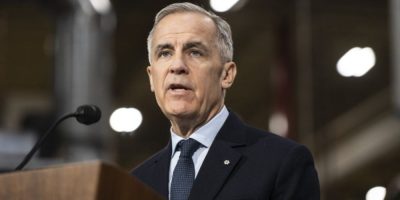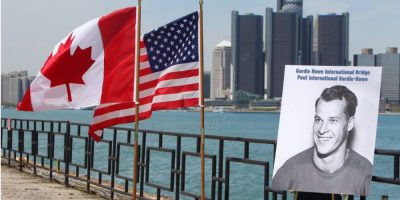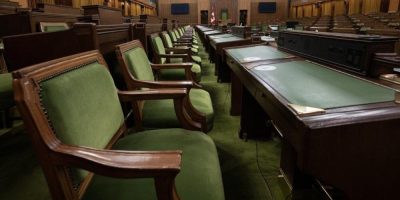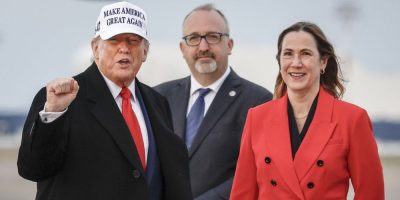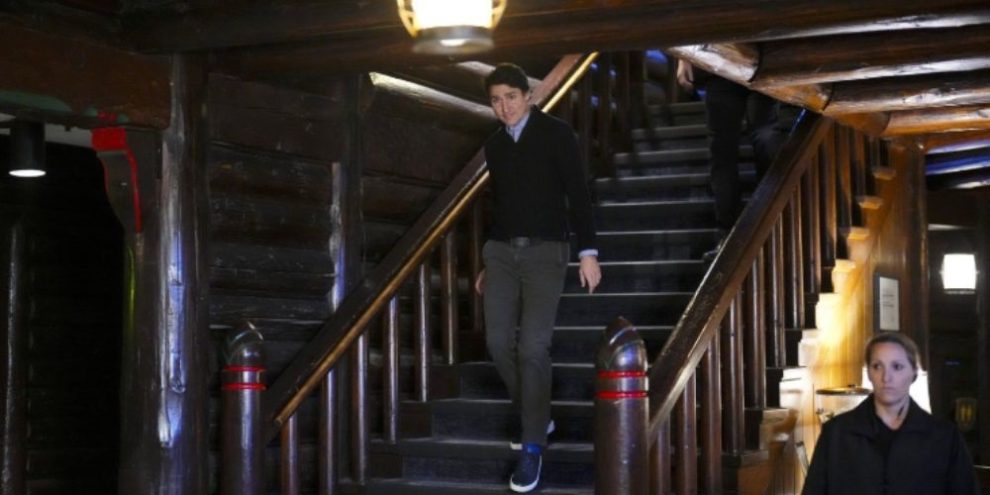
Updated January 21, 2025 @ 2:55pm
Prime Minister Justin Trudeau reached for a sales pitch instead of revealing any of his cards in his first public reply to U.S. President Donald Trump's suggestion that Canadian imports could face heavy tariffs as early as next week.
Trudeau insisted Tuesday that if Trump wants to usher in what he calls a "golden age" for the United States, he'll need the energy, critical minerals and resources that Canada is ready to provide.
"We are there to be constructive partners," Trudeau said at a federal cabinet retreat in Montebello, Que. that's focused on the Canada-U. S. trade strategy.
While Trump had been threatening to impose punishing tariffs on Canada on his first day in office, he opted instead on inauguration day to announce a plan to study alleged unfair trade practices.
The president signed an executive order directing that the study be completed by April 1. But late Monday evening, as he signed that executive order and others, Trump mused about giving the Canadian and Mexican economies a black eye with damaging tariffs on Feb. 1.
"We are thinking in terms of 25 per cent on Mexico and Canada because they are allowing vast numbers of people — Canada is a very bad abuser also — vast numbers of people to come in and fentanyl to come in," he told reporters at the White House.
Canada's Ambassador to the U.S. Kirsten Hillman said Trump's bluster is part of his overall strategy of generating "distraction" as he seeks leverage.
"Canadians know the facts. There is no criminal trafficking of fentanyl to the United States from Canada," she said.
Trudeau also pushed back on Trump's claim, saying less than one per cent of the fentanyl and migrants entering the U.S. come from Canada. He also boasted about the $1.3 billion his Liberal government has pumped into border security to appease Trump.
But that border security plan — which includes the deployment of dozens of new drones that Public Safety Minister David McGuinty said Ottawa has bought from the U.S. — has not convinced the president to stand down.
Trudeau said Trump will be focused on moving quickly in the "extreme short term" and he suggested Ottawa is crafting its messaging to respond to that sense of urgency.
But he acknowledged there's no telling what Trump will do or say next.
"There is always going to be a certain amount of unpredictability and rhetoric coming out from this administration," Trudeau said.
The prime minister said his government's focus is still on avoiding tariffs. If that effort doesn't succeed, he said, Canada will respond and "everything is on the table."
"Our response will be robust and rapid and measured, but very strong. The goal will be to get those tariffs off as quickly as possible," Trudeau said.
Finance Minister Dominic LeBlanc said Monday that Ottawa is preparing responses to various possible scenarios, though he did not shed any light on what they might be.
Speaking on Quebec talk radio Tuesday, Conservative Leader Pierre Poilievre said Trump only respects a show of force and Trudeau isn't capable of providing that.
"We need a prime minister who is able to regain control and show strength to the Americans in order to avoid these tariffs," he said in French.
In a statement, Poilievre also demanded Trudeau recall Parliament so MPs can debate the proposed border plan and retaliatory tariffs.
Parliament is on pause as the Liberal party prepares to hold a March 9 leadership vote to replace Trudeau. It is set to return March 24. Retaliatory tariffs do not specifically require legislation.
Speaking to the Canadian Labour Congress in Toronto, NDP Leader Jagmeet Singh said Canada should amp up the pressure by blocking critical mineral exports to the U.S.
"One of the best buds of the president, Elon Musk, needs those critical minerals for his batteries, so let's hit them where it counts," Singh said.
Both leaders are champing at the bit for an election but cannot force one until the end of March at the earliest because of the parliamentary pause.
The exact timeline for Trump's tariffs would depend on how he decides to go about implementing them. The process typically takes months, but pressing ahead on those border security concerns could allow him to declare emergency tariffs.
Trump also could change his mind at any point and even reapply pressure later on to extract further concessions. Canada typically holds a month-long industry consultation period before imposing tariffs of its own.
Industry Minister François-Philippe Champagne said senior Canadian officials have been busy south of the border, aggressively making the case to key governors that Americans don’t buy things from Canada out of politeness, but out of necessity.
"These supply chains have been created over decades and you cannot replace them easily in time," he said.
"If you say no to Canada — and I said that to a number of military personnel yesterday — be mindful of who you're saying yes to. You're probably saying yes to China on critical minerals, you're probably saying yes to Venezuela on crude oil."
This report by The Canadian Press was first published Jan. 21, 2025.
-With files from David Baxter in Ottawa

